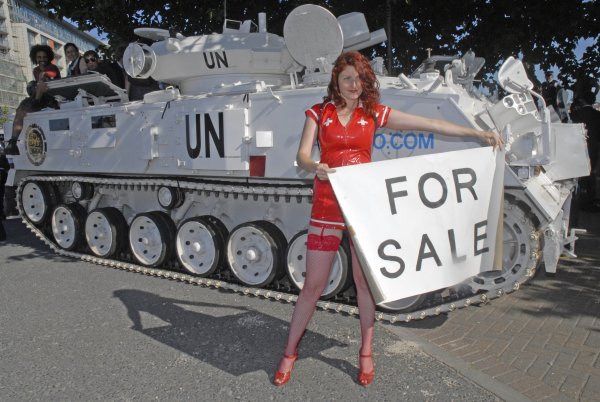Bureaucracy, Care & Attention
(There will be some examples of Plan B coming up soon - meanwhile, this started as an over-sized comment elsewhere, so I decided to post here instead...)
I've been thinking a lot about "attention" lately. Then I read Andy's post about Factory Records, Products that don't care if you buy them:
I love the Factory story. Not only did they produce some of my all-time favourite music, but I also find their anarchic approach really inspiring. It's a great example of a particular kind of story: the "we didn't care, and that's why it worked" story.
Anthony commented on this:
I was glad that the documentary on Factory didn't completely ignore the way that the members of Joy Division/New Order got completely shafted by Factory's ad hoc way of working. They didn't seem too bitter about it, but they did lose hundreds of thousands if not millions of pounds. Ad hoc is fine, but not so much if people get harmed by it in the process?
This all got me thinking...
The Factory approach feels like an antidote to the standard "managerial" approach to running an organisation/etc. It seems to me that managerialism is (among other things) a way of keeping an organisation/project/whatever running in a relatively stable way with the minimum amount of attention to the personal.
By structuring processes to be as rational, predictable and defined as possible, you limit the consequences of not paying attention to the personal (i.e. the fact that your organisation is actually made up of people).
Of course, you also limit things like autonomy and creativity and meaningfulness. If you want a more creative organisation, you can try to dispense with managerial processes, etc. But unless this is accompanied by a much greater level of attention to the personal, this will tend to increase the extent to which people get harmed.
I can see three kinds of response to this:
(1) A tendency to treat the people getting hurt as "collateral damage" - unfortunate, but a price worth paying. (This kind of attitude is in keeping with a lot of the messages we get - from politicians, the media, the education industry - about what life is like.)
(2) A nostalgia for older, more hierarchical and bureaucratic ways of running organisations. There's a cluster of thinkers and writers on the left who exhibit this - people like Richard Sennett, Zygmunt Bauman, Madeleine Bunting and Barbara Ehrenreich. (Sennett in particular recants his earlier enthusiasm for the New Left and its desire for more autonomous ways of living.) While this is motivated by a proper recognition of how people get hurt by newer, anti-bureaucratic organisational styles, I think it leads to an unnecessarily bleak position.
(3) A deeper, practical critique of our organisations and workplaces. If doing things together in a creative, autonomous and meaningful way requires greater attention to the personal, then maybe we need to lower our prized "productivity" and spend more time attending to each other as people? Maybe in addition to "doing things badly", The New Sociablism should encourage us to "do things slowly" and "do less".
This could sound like the kind of impractical proposal that requires a different world to the one we currently live and work in. But my experience is that other worlds already exist in the gaps and cracks and folds of the World towards which our attention is generally directed...
Finally, to go back to "We didn't care, and that's why it worked" - I remember my singing teacher telling me at 17, "A lot of people in this school think that you don't care, but I think you do." (By which I understood her to mean that I really wanted to be good and obedient and was putting on a show of rebellion in order to be cool.) I was silently incandescent and would still like to go back and tell her that I did and do care - just not about the things she thought were worth caring about.
So rather than celebrating not caring, let's celebrate choosing what to care about. (And don't "care" and "attention" refer to more or less the same thing?)






